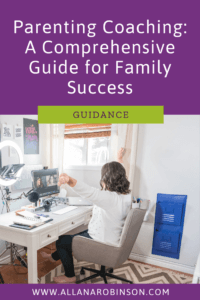Watch the video version of this post- click here.
Why Yelling Rarely Works as Advertised
Changing your old ineffective parenting habits into new positive habits is a process – it’s not a case of switching your behaviours overnight. I know that a lot of parents struggle with falling back on old habits. I also find that it’s easier to stick to new habits when you have a real understanding of why the old ones were so damaging, and that is what I’m going to be discussing in today’s post.
YELLING! Yes, we’ve all done it, and it’s necessary on occasion, but it’s easy for parents to fall into a yelling habit.
I’m not going to criticize anyone’s parenting choices – some parents admit to having a “yelling parenting style,” and if that works for them, it’s their choice. However, it seems to be more frequently the case that parents come to me seeking help to stop yelling. Parents so often tell me, “I’m a yeller, and I hate it, but I have no idea how to do anything else.”
If this is you, you’ve probably realized that constant yelling is not usually an effective parenting technique. I’m not a big fan of yelling, and in Uncommon Sense Parenting, I teach parents how to stay calm in stressful situations, and then let out those big emotions by screaming into a pillow or alone at the top of a mountain – whatever works for you!
Not being a yelling parent does not mean being a permissive parent, and it doesn’t mean you’re going to stay 100% calm and Zen at all times either. But learning how to be firm and stay in control without resorting to yelling can be a valuable skill for parents to master.
The Science of Yelling
So, to understand better why yelling is not as effective as you might hope it will be in the moment, let’s take a look at what happens in our kids’ brains when we yell.
Yelling is a shock tactic – when you yell at your kids, you literally shock them with sound. This puts your child into a “hyper-aroused” state, shutting off their normal access to language, reason, and logic, and activates their survival instinct.
Now, this can be very useful in some situations. Lets say your kid is about to run into the road or put their hand on a hot stove – shocking them into survival mode is exactly what we want.
However, you start running into problems if you’re regularly using yelling as a parenting tactic in situations that aren’t a danger to your child’s safety. If you’re yelling at your kids every day over little things, like about getting dressed or coming to dinner, you’ll find that they actually become desensitized to it.
In other words, yelling stops being an effective technique. What’s more, a child who is constantly yelled at is almost permanently in a state of hyper-arousal. Because the logical part of their brain is switched off, they become ruled by their emotions. When kids are emotional, they become very reactive to outside stimuli because they don’t have access to reason.
So you end up with over-emotional kids who don’t listen, no matter how much you yell! The more you yell, the more it becomes the norm, and the louder you have to yell to get any kind of reaction.
Yelling might seem like a good way to get things done in the short term, but in the long term you’re going to end up with kids that don’t listen and don’t learn better behaviour because it’s neurologically impossible for them to do so.
We now have scientific proof that yelling wires your child’s brain for reactivity instead of calm, and it also wires your brain for reactivity instead of calm. When you’re constantly yelling, your limbic system is basically freaking out, meaning you’re always on-edge and quicker to yell about small things – it’s a vicious cycle!
So, What’s the Alternative to Yelling?
This all sounds very serious, but there’s no point in beating yourself up if you’re currently a yeller. Most importantly, the situation is reversible and the damage isn’t permanent.
You can set boundaries without resorting to yelling, and you can teach your children how to pay attention when you speak without raising your voice. You can use what I call the Logical Consequence Process to teach your kids how to think critically and fix their own behaviour mistakes.
So, if you’re currently a yeller, but you want to learn better techniques for dealing with bad behaviour and getting your kids to listen to you, come and join us in the Parenting Posse!
We’ve got loads of different resources to help you out, including my FREE Script Pack for managing crazy-making behaviours. The whole community is really supportive, and we have some interesting discussions in there too – hope to see you there!
I’d love to know if this all makes sense to you, and what you think about yelling in general. Please drop a note in the comments to let me know what you think.
Until next time!













